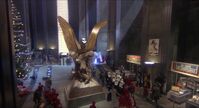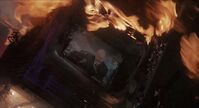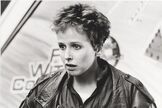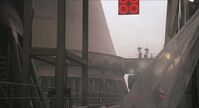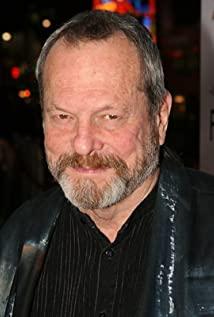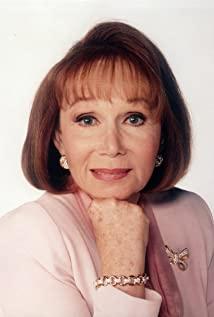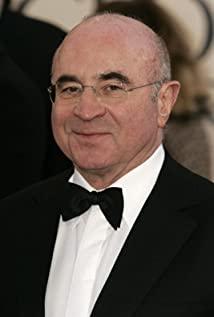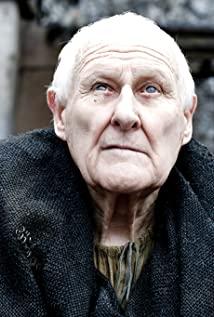Regarding the novel "1984", many of them are very heavy after reading.
As the most famous one of the "Dystopian Trilogy" in the 20th century, "1984" has naturally become the target theme of film adaptation. As early as 1956, seven years after the novel was published, Michael Anderson made the first version of the movie.
Then came 1984, the year that happened in the story of the novel, if I remember correctly. Michael Ledford specifically in that year's remake of his own works to the big screen.
Both versions of the movie are relatively close to the original, one in black and white, and the other in color. The reputation is fair, but they can't match the status and depth of the theme compared to the original novel.
In fact, there was a dystopian film in 1985, which can be regarded as an informal change of "1984". This is a work that is easily overlooked in the field of dystopian movies. Its director Terry Gilliam , 10 years later, in 1995, took out the science fiction crossover classic "Twelve Monkeys" .
This work is "Wonderful Imagination" . Unlike the novel "1984", many viewers are mixed with joy and sorrow after reading it.
The English title of the movie is "Brazil" . It may be difficult to understand why it is called "Brazil" without looking up some background information. But after listening to a classic music "Aquarela do Brasil", you will quickly understand why, because the film used this piece as the soundtrack in the 8th minute.
"Aquarela do Brasil" was released in 1939 and became famous all over the world after being used as the soundtrack in the Disney animated film "To My Friends" in 1942 .
In the " Journey to Brazil" chapter of "To My Friends" , Brazil is a dreamy and free place, so Terry Gilliam's use of the title "Brazil" is very obvious, "Aquarela do Brasil" It can express several themes of the movie, such as absurdity, dream, romance, sadness and so on.
1. Absurd
"Twelve Monkeys" and "Wonderful Imagination" together established Terry Gilliam 's futuristic style. His future world mainly has the following characteristics:
① "Old-fashioned" future technology
②Characters exaggerated and avant-garde style dress
③Does not rely on computer special effects at all
It's such a future without grand scene special effects and gorgeous high-tech, but full of irony and banter.
The scene where the protagonist and his mother are having a meal together and encountering a terrorist attack. Someone was injured and fell to the ground. The scene was very chaotic. The musicians on the side were still in the mood to continue playing the violin. The actor and his mother continued to eat casually, as if nothing happened behind them.
If someone is unfortunately injured and doesn't help, even if he can still eat comfortably. It is through such a plot that Terry Gilliam made an important explanation for the indifference and darkness of this future society .
"Form" is an important metaphor in the film.
When the police arrested the suspect Mr. Buttle at the beginning, they asked Mrs. Buttle to fill in the form;
When the heroine goes to appeal for wrongful detention, she has to go through a series of complicated procedures to get the application form;
When the male protagonist Sam Lowry asked the central service station to repair the air conditioner, the repairman could not enter the house without a 27B/6 document.
These tables represent the rules and regulations of the society. Strictly speaking, they are powers. Most people dare not violate them at all . The people in "Wonderful Fantasy" did so. As a result, there is no human affection between people. It became the white horror in "1984".
In addition, the props in the movie are also very ironic.
The "Mini version" computer screen requires a "magnifying glass" for use.
"Mini version" buses require the entire cover to be opened to barely get in and out.
The intention of this design is also obvious, that is to let the audience more subjectively experience what is meant by "squeeze".
2. Dream
Regarding the "dream part" of "Wonderful Imagination" , it is a very unpleasant part of the audience. Similar to Jiang Wen's "One Step Away" , the "imagination" part is to some extent the director's "self-heavy".
Therefore, the practice of Sam Lowry's dreams constantly interspersed and interrupted the main plot narrative is really inexplicable and mixed.
But it’s undeniable that Terry Gilliam shaped Sam so wonderfully through this intermittent dream. Although he lives in a dystopian society where people are strictly controlled, in his subconscious, he is a “superhero”. "The hero saves the United States and dares to fight the evil forces.
He is such a person in his bones, so the following plot can proceed rationally.
Comparing the two parts of reality and dream, we can find that the plots on both sides are essentially the same:
Sam meets the lover of his dream, but is taken apart by the big devil. Sam didn't admit his fate, but chose to find a lover and fight against the big devil. And that big devil represents power.
Unfortunately, reality and dream endings are completely different.
Dreams are always beautiful, and reality is always skinny.
3. Romance
The background of "Wonderful Imagination" is set in the distant future, and the UK has entered an era of information management and control. The story uses the arrest of Mr. Buttle as the fuse and tells the "Awakening Journey" of "civil servant" Sam Lowry.
At the beginning, Sam, who worked in the Archives Bureau, was called by his boss urgently. He found an error in the Information Retrieval Department. It turned out that Mr. Buttle was innocent. The real criminal was named Tuttle. I don’t know who typed a wrong letter and caused the incident. Oolong.
In order to prevent his boss from being scammed, Sam got involved in this oolong incident. In the meantime, he met his "goddess of dream" and Tuttle, an electrical repairman.
Because of his flexible mind, Sam is not limited by rules and regulations, and is highly reused by his boss. However, the appearance of Tuttle and the dream goddess Jill Layton made the things he could have held out of control.
Oscar actor Robert De Niro plays Tuttle. This role represents an unruly force against systemic oppression. His line "We are in the same boat" has something to say, implying that he and Sam are the same kind of person and disdain. For people who blindly follow the rules.
Maybe many people watched this movie for Robert De Niro . His name and the starring role are side by side on the poster. But this is probably only for the promotion of the box office. In fact, Robert De Niro is only a cameo.
He didn't grab Sam's role, but in only about 10 minutes of performance, he successfully created the image of a ruffian repairman, completely subverting his previous "gangster brother" temperament.
The goddess Jill Layton in the dream represents the most emotional part of mankind, love. This is the most romantic part of the film.
Like the novel "1984", love is the key factor that promotes the "growth" of the protagonist. Sam in "Wonderful Ideas" is also a "civil servant", but because of love, he began to deviate from the system and embarked on a "road of no return." This story line is similar to "1984", except that the heroine's identity has changed, the general environment has changed, and the way of expression has changed.
Terry Gilliam did not hesitate to modify the part of love. He directly made Sam's dream into a romantic romance film of heroes saving the beauty. The degree of romance in the real part is actually no less than that of the dream, especially with Jill Layton. The scene with the wig.
Isn’t it romantic enough to meet the goddess of your dreams and take an adventure with her, desperate for her?
However, humans are not just emotional animals.
The rules and systems that represent rationality often conflict with love that represents sensibility. This conflict can be regarded as the core part of "Wonderful Fantasy" .
4. Sadness
The result of the conflict is a tragedy.
"Wonderful Imagination" tells a tragedy in a comedy way. The plot of "tears in laughter" can be seen everywhere in the film.
The mother's cosmetic surgery is a kind of pity while making people laugh. Probably middle-aged and elderly audiences will have a deeper feeling.
The two tricky air-conditioning repairmen, their encounters can make the audience laugh, but in fact, they are not tragic roles within the system.
The final ending, Terry Gilliam is also expressed in a comedy way.
It’s okay to regard this ending as the ending of "1984", so viewers who have watched "1984" will have a strange feeling when they look at the ending part.
From a psychological point of view, this is a psychological compensation mechanism. Sam has fallen into an unprecedented pain, so he needs some "comedy" content to "compensate."
In fact, the movie can come to an abrupt end in the cheerful part. The mother regained her beautiful face as she wished, while Sam walks away with the goddess Jill Layton. Even if most viewers know that this is not true, Terry Gilliam did not do so. He still used a strong reversal to pull the viewer back into the terrible reality.
Maybe he thinks that since it is a utopian movie, it is natural to give a warning.
Some realities are just so desperate. Of course, "1984" is more desperate, so the warning effect is also greater.
Maybe we can only get psychological compensation in some "false", so we need something called a movie. But we can't reach the end and remain intoxicated, we must get out and face the reality, so Terry Gilliam chose to let the audience and Sam "return to reality" together.
And even if he doesn’t do this, "Wonderful Ideas" is still a stunning work. The unparalleled and ingenious creativity in it is exactly what the science fiction movies that are flooded by superheroes and are overwhelmed by visual special effects require the "promotion." Device".
*If you need to reprint, please contact the authorization
Whoever controls the past, controls the future;
Whoever controls the present will control the past.
——"Nineteen Eighty Four"
View more about Brazil reviews



